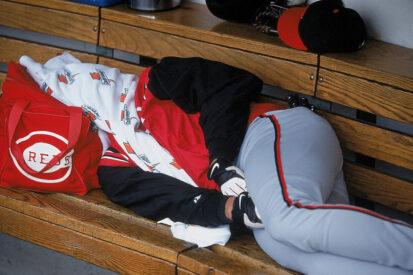After playing baseball for over 20 years, coaching for a few, and giving lessons, I came across many different coaching styles and what they like to focus on. There are so many different philosophies and processes that coaches use to prepare their team for competition and to improve each individual player. There are no right or wrong ways, and there is not one better method, but there are common themes to what great coaches do.
Some coaches I have played for were really laid back, some were very strict, some had little knowledge of the game, and some played at the highest level. There is a broad spectrum, but the beauty is that a player can learn from every type of coaching style and every coach they come across.
The laid back coaches mostly showed up and always just have us go through the motions. The strict coaches would micromanage us and we would have no freedom to think for ourselves. The coaches who lacked knowledge of the game were leading us in the different direction. It isn’t their fault since they are trying to help, but they just don’t know better. The ones who played at in the Big Leagues are the ones who know the game best, but coaching and playing are two very different things. The communication of how to execute is what would make them better coaches.
This goes to show that coaching is something to work on just as much as you would when you were playing. As coaches, our goal should be to help to develop each player and to instill proper values and confidence in them. Once their playing career is over, they have traits that they can carry over into life.

Here are four different traits that all great coaches possess:
1. Accountability
Accountability is probably one of the biggest factors of being a successful coach. The best teams I have played for were the ones that held us accountable for our action. They instilled discipline in us to really focus on getting better in each task. We were accountable for our actions by some sort of reasonable consequence or reward.
I also noticed that during my first year of coaching, I had no idea about this concept. I would teach them, but not hold them accountable for them to implement what I taught. It is on me, as a coach, to hold them accountable so that they become better ball players for it and ultimately make them a better team overall.
2. Attention to Detail
Attention to detail is very important in every coaching style. There are many different ways to field a routine ground ball straight at you. With that said, the coach who can break down everything from your fielding mechanics to your mentality on how to approach the ball and to reading the hops are the ones that help their players the best. If a player can understand everything that goes into fielding the grounder, he or she can make the best decision possible on each grounder that comes their way.
3. Process and plan of practice and games
Having a process and a plan for every practice and game helps both the coaching staff and the players to understand what their team goals are that day. With this plan, players can make individual goals for themselves to hit. The structure of practices can help lead teams to victory or to lead them off course. Unfortunately, there are no substitutions to sticking to a process and a plan. If something does not work, you can revise the plan to make it better. If the plan is broken, you will lose out in other areas of the game. On top of that, it becomes a habit of breaking the plan so that means lacking practice time in the other areas even more.
4. Communication
The way coaches communicate with players can make or break a team. No matter how much knowledge a coach has about the game, if he cannot communicate it well for their players to understand, the team will have a hard time succeeding. They would have to rely on pure talent. Every great coach can communicate extremely well and can break down concepts into its simplest form and can also elaborate on them as well.
I believe that each of these also teach significant lessons that can be transferred into real life. If you hold your team accountable, pay attention to detail, have a process and plan, and can communicate well, you will be a great coach. If not, there is always room for improvement. With the awareness of these traits, you are able to work on them and make them into strengths. The result? Given time to adapt and adjust, you will ultimately develop winning teams.








